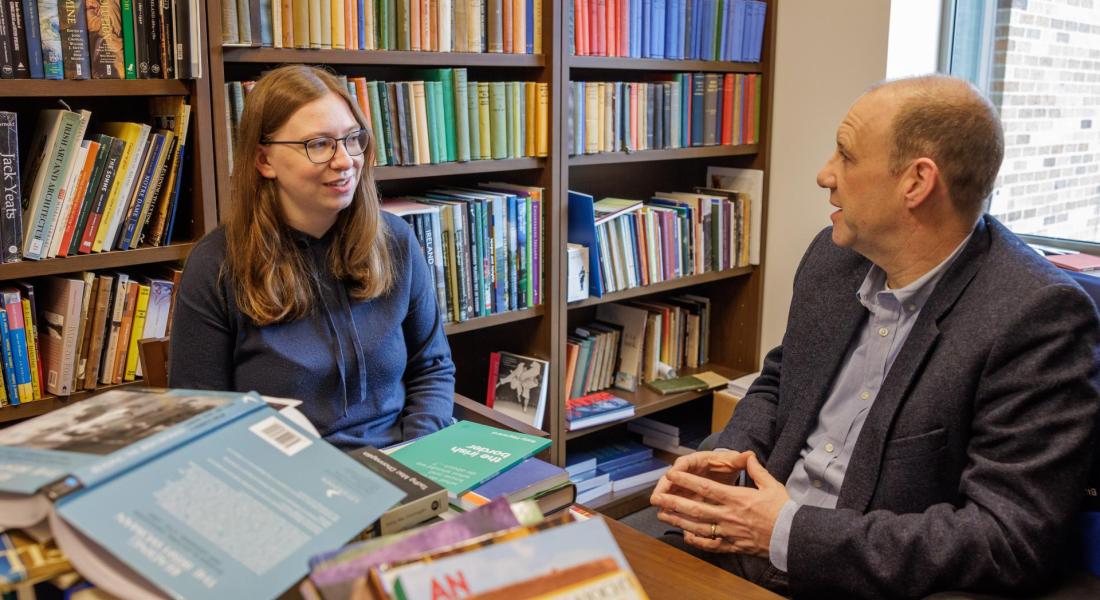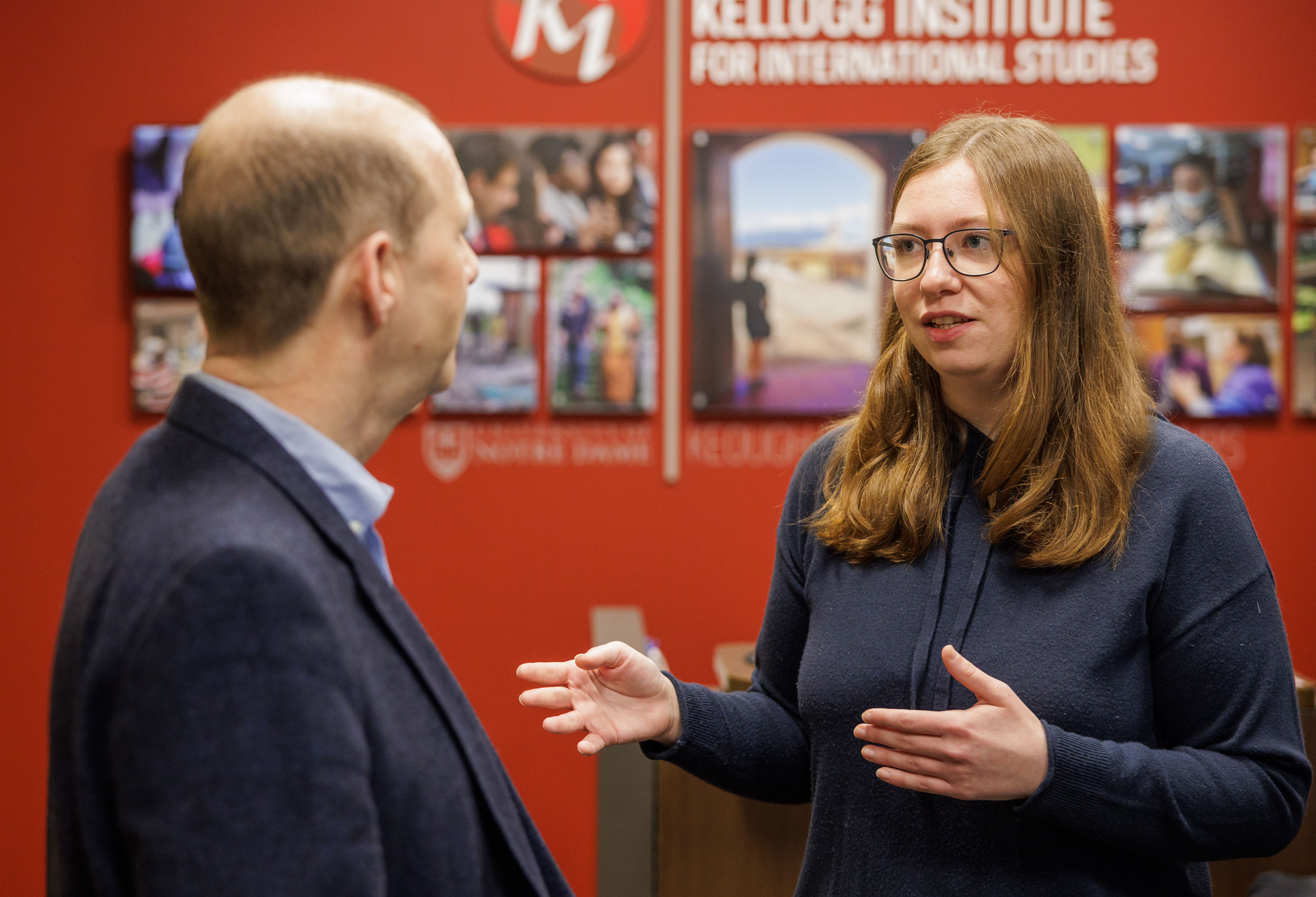
If you were just walking by the residence hall, you’d never know that Abigail Keaney ’24 (global affairs and political science) keeps 100 books stashed under the bed in her room. She’s had them since her sophomore year, when she had to find storage space for a collection given to her by Kellogg Faculty Fellow Brian Ó Conchubhair, who became her mentor through the Kellogg International Scholars Program (ISP).
“If you're serious about Northern Ireland, you have to read these books,” Ó Conchubhair, who is Associate Professor of Irish Language and Literature, told Keaney. She accepted the challenge.
Keaney and Ó Conchubhair are now among five faculty and student ISP pairs who will present academic research work during Kellogg International Scholars Program Research Night on Monday. It’s a chance for University of Notre Dame students to learn about the program.
Keaney’s senior thesis on Northern Irish national identity over time reflects the investment she’s made in understanding identity, both personally and politically, and the role of language and literature in shaping identity. Ó Conchubhair says Keaney is the first person to formally research an Irish language rights movement that has its roots in debates that, though more nuanced now, date back centuries.
“The next generation may be less defined by religious affinities and confessional politics, but identity still matters in meaningful ways,” says Keaney, whose research took her to Ireland. She connected with An Dream Dearg Irish language rights activists including Clíodhna Ní Chorráin, a 2022-2023 Irish Fulbright Language Teaching Assistant at Notre Dame, to conduct interviews that explored identity formation.
An Dream Dearg has successfully advocated for use of the Irish language in courts, which was previously illegal, and for use in communities – on street signs, for example, as a way of expressing shared identity.
 “You have to get it from somewhere, identity is so powerful. It’s not just the right to speak your own language but your identity in your home,” said Keaney, who carries three passports and whose own British-Irish-American identity has driven her inquiry into how one arrives at national identity.
“You have to get it from somewhere, identity is so powerful. It’s not just the right to speak your own language but your identity in your home,” said Keaney, who carries three passports and whose own British-Irish-American identity has driven her inquiry into how one arrives at national identity.
“Is that something you can decide or is it something that's assigned to you by other people?” she asks.
Home is in London, but support from Ó Conchubhair and Kellogg have helped Keaney to become increasingly at home in academia, including a research presentation at the Celtic Students Conference in Glasgow, Scotland. Keaney credits Ó Conchubhair with developing her ability to articulate her ideas.
“We started attending weekly lectures, to study how visiting academics begin and end their talks, how they answer questions, how people ask questions,” says Ó Conchubhair. It’s been an intensive, one-on-one mentorship, but in his advisor role, he’s watched Keaney learn to critique with confidence, to collect archival material, to connect with politicians, and to present her own research.
“She already speaks the language, she knows the language, and she's bringing stuff to the table from what she's reading and the research she does for me,” he said. “I'm learning from her, when I read her reports and her interviews with activists.”
Keaney says that despite all those books under her bed, she’s more of a politics person than into Irish literature, though it’s true that political issues are so often expressed through art. She loved a Brookings Institution internship and its focus on anti-corruption. She’s worked with the Public Policy office of Girl Scouts USA. She’s applied for a James C. Gaither Junior Fellowship with the Carnegie Endowment for International Peace.
She’s considering social justice work with the Jesuit Volunteer Corps, too. “I’m applying to grad school but taking a year off,” she said. “I like academia but I want to do on-the-ground stuff.”
Ó Conchubhair, whose own book collection includes the recent Irish-language biography he’s written about 20th-century author Flann O'Brien, says he supports Keaney as she fully explores her options.
“Abigail won't follow the flock,” he said. “She’ll stop, and think and discern, and make her own judgments.”
In the meantime, she’ll have the chance to present her work to fellow students interested in the ISP program at Research Night – just as she became interested in the program as a first-year student hearing a Kellogg student speak in one of her classes.
“Without Kellogg, and the network of students reaching out to freshmen, this would have never happened,” said Ó Conchubhair.
The Kellogg Institute for International Studies, part of the Keough School of Global Affairs at the University of Notre Dame, is an interdisciplinary community of scholars and students from across the University and around the globe that promotes research, provides educational opportunities, and builds partnerships throughout the world on the themes of global democracy and integral human development.





